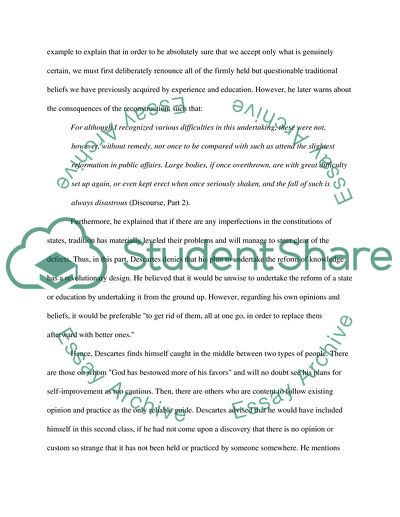Cite this document
(Discourse on Method by Rene Descartes Book Report/Review, n.d.)
Discourse on Method by Rene Descartes Book Report/Review. Retrieved from https://studentshare.org/philosophy/1504882-rene-descartes-on-discourse-on-method
Discourse on Method by Rene Descartes Book Report/Review. Retrieved from https://studentshare.org/philosophy/1504882-rene-descartes-on-discourse-on-method
(Discourse on Method by Rene Descartes Book Report/Review)
Discourse on Method by Rene Descartes Book Report/Review. https://studentshare.org/philosophy/1504882-rene-descartes-on-discourse-on-method.
Discourse on Method by Rene Descartes Book Report/Review. https://studentshare.org/philosophy/1504882-rene-descartes-on-discourse-on-method.
“Discourse on Method by Rene Descartes Book Report/Review”. https://studentshare.org/philosophy/1504882-rene-descartes-on-discourse-on-method.


